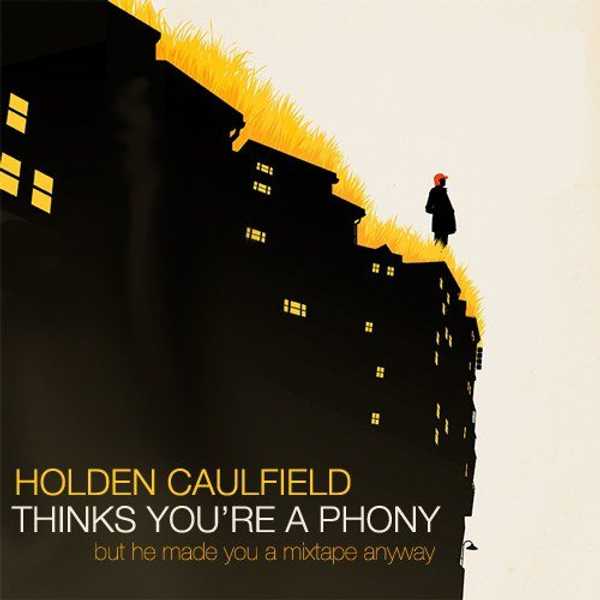Being an English major, I am constantly questioned about my favorite novels or other pieces of literature, whether it is in a class or just a casual conversation with someone. You just get used to it after a while. When asked what my favorite novel is, I always give the same answer; my favorite novel of all time is "The Catcher in the Rye" by J.D. Salinger. Now, when I say this, I usually get a variety of different reactions. The most common one, however, is something along the lines of "Really? That's such a depressing book!" Well, little do you know that maybe that is what I actually like about it. Anyway, besides the fact that it is a tad depressing, "The Catcher in the Rye" is an American classic with many important messages!
"The Catcher in the Rye" was published in 1951, a few years after World War II. It is essentially a novel about the life of a teenager named Holden Caulfield. Throughout the novel, Holden is considered as "a product of war." He is not very optimistic and does not want to become an adult because he feels that adults are all phony (you can't really blame him for feeling that way, though). Holden does not want to live according to societal rules and restrict personalities and human connections. "The Catcher in the Rye" is ultimately a coming of age story revolving around themes such as the loss of innocence and the product of war, all intriguing things for lovers of literature!
Not many people understand the impact World War II had on writing. Writers were greatly influenced by the war. Along with the war came brutal experiences and uncertain outcomes. All of these experiences called for more experimental writing and greater depth was shed upon the insight of authors and writers everywhere. J.D. Salinger, the author of "The Catcher in the Rye," actually fought in WWII. This was the time he decided to start writing the novel. Many changes were made to the novel as Salinger experienced different traumatic events. The work was literally carried through the war. It was present in concentration camps, battlefields and during the death of many of Salinger's fellow soldiers. The trauma that the novel has witnessed itself definitely impacts the value that it proposes.
That being said, "The Catcher in the Rye" is more than just some book you read in a high school literature class. It is quite literally a product of war, just like its main character Holden Caulfield. When you read this novel, you can feel the emotions of Holden and go through his experiences with him. It helps you to understand a little more about how World War II changed the lives of Americans. Yes, the content is a bit depressing, but in the end, a positive message is shared for all readers to learn something from. Holden finds happiness in something small, despite all of the chaos he deals with in his life.
So, if you haven’t already, I highly advise anyone reading this to also read "The Catcher in the Rye." It's worth it. Trust me; I'm an English major.





















